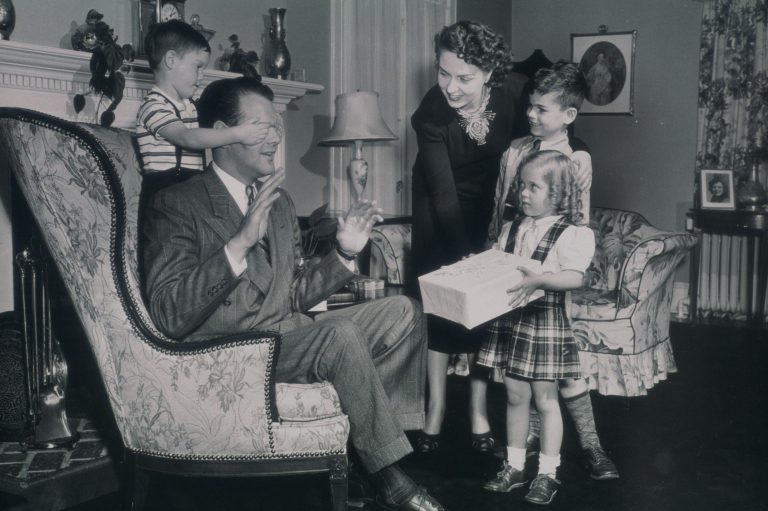The holiday season brings joy, warmth, and the spirit of giving. However, amid the cheer, there may be moments when you receive a gift that doesn’t quite align with your taste or needs. Handling this situation with grace and tact is an art in itself. Here’s a guide on how to react when faced with a Christmas gift you dislike:
Table of Contents
ToggleHow to React to a Christmas Gift You Dislike
Express Gratitude: Regardless of your feelings about the gift, the initial response should always be gratitude. Thank the giver warmly for their thoughtful gesture. Remember, their intention was to make you happy, and your appreciation for their effort is crucial.
Focus on the Positive: Find something positive about the gift to acknowledge. It could be the effort put into selecting it, the color, or any aspect that you genuinely appreciate. This helps redirect the conversation to a more positive note.

Avoid Dishonesty: While focusing on the positive, it’s essential to maintain honesty. Being overly effusive about a gift you dislike might come off as insincere. Instead, express your gratitude genuinely without overemphasizing your enthusiasm.
Refrain from Immediate Reactions: If you’re caught off guard or genuinely disappointed, avoid showing it in the moment. Take a moment to compose yourself before responding. Rushed reactions might lead to unintentional expressions that could hurt the giver’s feelings.
Avoid Criticism or Comparison: Refrain from making comparisons to other gifts or expressing criticism about the present. Comments that could be construed as negative might cause discomfort or embarrassment to the giver.
Explore Its Positive Use: Consider how you might incorporate the gift into your life positively. Even if it’s not precisely what you wanted, there might be ways to utilize or repurpose it. This not only shows appreciation but also gives value to the gift.

Consider Regifting or Donation: If the gift doesn’t suit your tastes and you’re unlikely to use it, consider regifting it to someone who might appreciate it more. Alternatively, donating it to a charity or thrift store ensures it finds a home where it’s valued.
Follow Up with Appreciation: Send a follow-up message or note after the holidays, reiterating your gratitude for the thoughtful gesture. Mention a specific aspect of the gift you’ve enjoyed or used.
Remember, the act of gift-giving is rooted in the spirit of generosity and thoughtfulness. While not every gift may match your preferences, handling the situation with grace and appreciation helps maintain the joyous spirit of the holiday season. A heartfelt “thank you” is a gift in itself, acknowledging the giver’s effort and goodwill.
Some Christmas Gifts Easily Got Disliked to Avoid
There are some Christmas gifts, despite good intentions, might not resonate well with everyone. Here are a few types of gifts that could potentially be disliked by many:
Overly Practical Items: Gifts that are excessively practical, like cleaning supplies or mundane household items, might not feel very festive or special during the holiday season.
Clothing Without Consideration: Clothing gifts can be hit or miss, especially if the size, style, or color doesn’t align with the recipient’s preferences. Additionally, overly eccentric or unusual fashion pieces might not suit everyone’s taste.

Self-Help or Diet-Related Items: Gifts related to weight loss, self-help books, or items implying personal improvement might unintentionally send a message that could be perceived as insensitive or unwelcome.
Regifted or Used Items: While the act of regifting can be practical and eco-friendly, if it’s noticeable or if the item appears used or well-worn, it might not be well-received.
Gag or Joke Gifts: While humorous gifts can be fun among close friends or family members, overly gimmicky or inappropriate joke gifts might not be appreciated, especially in more formal or sensitive settings.
Excessive Knickknacks or Decor: Decorative items can be lovely, but excessive knickknacks or decorations that don’t align with the recipient’s taste or style might become burdensome or clutter the home.

Gift Cards Without Thought: While gift cards can be versatile, presenting them without much thought or personalization might come across as lacking in effort or consideration. Find out more about why gift cards are not the best Christmas gift idea.
Cheap or Dollar Store Items: Items that are visibly low in quality or seem hastily purchased without consideration for the recipient’s tastes or preferences might not be well-received.
Hobby-Specific Items Without Research: Hobby-related gifts can be thoughtful, but items related to a hobby the recipient isn’t interested in or already has extensive knowledge about might not be useful.
Experiences Not Suited to the Recipient: Experience gifts, such as tickets to events or activities, should align with the recipient’s interests. For instance, gifting skydiving tickets to someone afraid of heights might not be well-received.

Remember, individual preferences vary, and what one person might dislike, another might appreciate. The key to a successful gift lies in considering the recipient’s tastes, interests, and preferences. Thoughtful and personalized gifts often resonate better and show that you’ve considered the recipient’s personality and interests.
Conclusion
Remember, the act of gift-giving is rooted in the spirit of generosity and thoughtfulness. While not every gift may match your preferences, handling the situation with grace and appreciation helps maintain the joyous spirit of the holiday season. A heartfelt “thank you” is a gift in itself, acknowledging the giver’s effort and goodwill.















+ There are no comments
Add yours